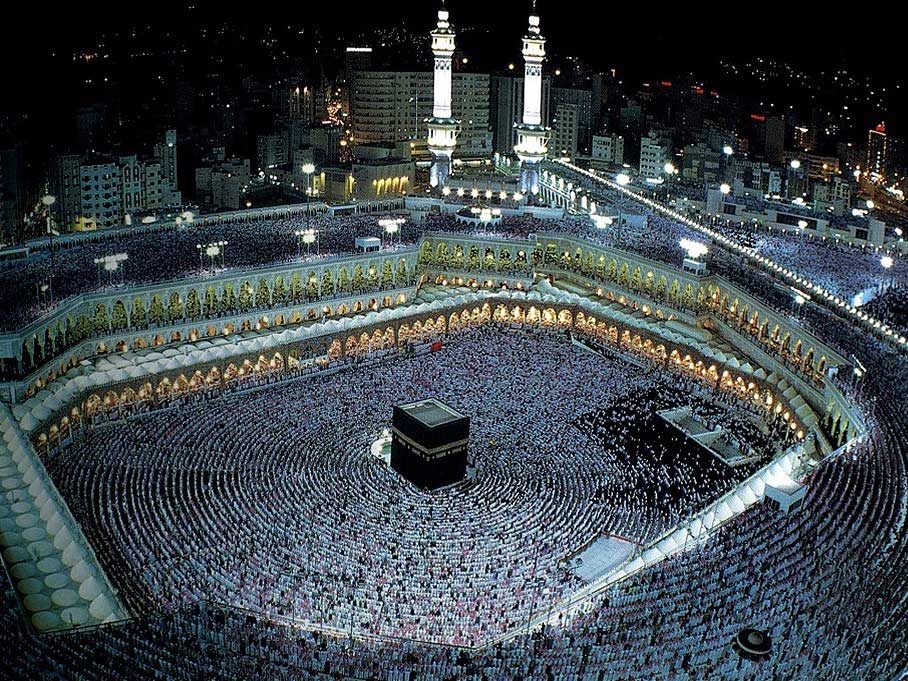The sighting of the new crescent of Dhul Hijjah in Saudi Arabia on Thursday night has officially marked the start of the last month of the Islamic Hijri calendar, beginning on June 7. This announcement was made by the Supreme Court of Saudi Arabia, confirming that Eid Al Adha will be celebrated on June 16, 2024. The day of Arafat, a key component of the Hajj pilgrimage, will fall on Saturday, June 15, 2024. This important religious event is observed by Muslims around the world as a time of prayer, reflection, and charitable acts.
The sighting of the crescent moon is a significant event in the Islamic calendar, as it marks the beginning of a new month and important religious observances. Muslims believe that the lunar calendar is a sacred system that has been followed for centuries to determine the timing of their religious duties. The sighting of the moon is often a community effort, with religious authorities and individuals looking to the sky each month to determine the start of the new month. This practice is deeply rooted in Islamic tradition and plays a vital role in religious observance.
Eid Al Adha, also known as the Festival of Sacrifice, is one of the most important Islamic holidays, commemorating the willingness of Prophet Ibrahim to sacrifice his son as an act of obedience to God. It is a time of feasting, prayer, and giving to those in need. The day of Arafat, which precedes Eid Al Adha, is a day of intense prayer and reflection for Muslims performing the Hajj pilgrimage in Mecca. It is believed that this day holds great significance and offers a chance for repentance and forgiveness.
The Hajj pilgrimage to Mecca is one of the Five Pillars of Islam and is a mandatory religious duty for Muslims who are physically and financially able to undertake the journey. The pilgrimage takes place during the Islamic month of Dhul Hijjah and culminates in the ritual of Eid Al Adha. Each year, millions of Muslims from around the world travel to Mecca to perform the Hajj, following in the footsteps of Prophet Ibrahim and seeking spiritual fulfillment. The pilgrimage is a deeply spiritual and transformative experience for those who undertake it, with many pilgrims describing it as a profound journey of faith and self-discovery.
The sighting of the new crescent of Dhul Hijjah in Saudi Arabia is a momentous occasion for Muslims worldwide, as it signals the start of the sacred month leading up to Eid Al Adha. This time is a period of increased devotion, prayer, and reflection for Muslims, as they prepare for the important religious observances ahead. As the community comes together to celebrate these significant events, it is a time of spiritual growth and renewal, with believers seeking to deepen their connection to their faith and strengthen their relationship with God. The upcoming celebrations of Eid Al Adha and the day of Arafat serve as reminders of the importance of sacrifice, faith, and devotion in the Islamic tradition.
In conclusion, the sighting of the new crescent of Dhul Hijjah in Saudi Arabia marks the beginning of an important period in the Islamic calendar, with Eid Al Adha and the day of Arafat fast approaching. These religious observances hold great significance for Muslims around the world, offering a time of prayer, reflection, and charitable acts. As believers come together to celebrate these events, they are reminded of the importance of faith, sacrifice, and devotion in their spiritual journey. The upcoming month of Dhul Hijjah is a time for increased devotion and spiritual growth, as Muslims prepare to observe these important religious traditions.











